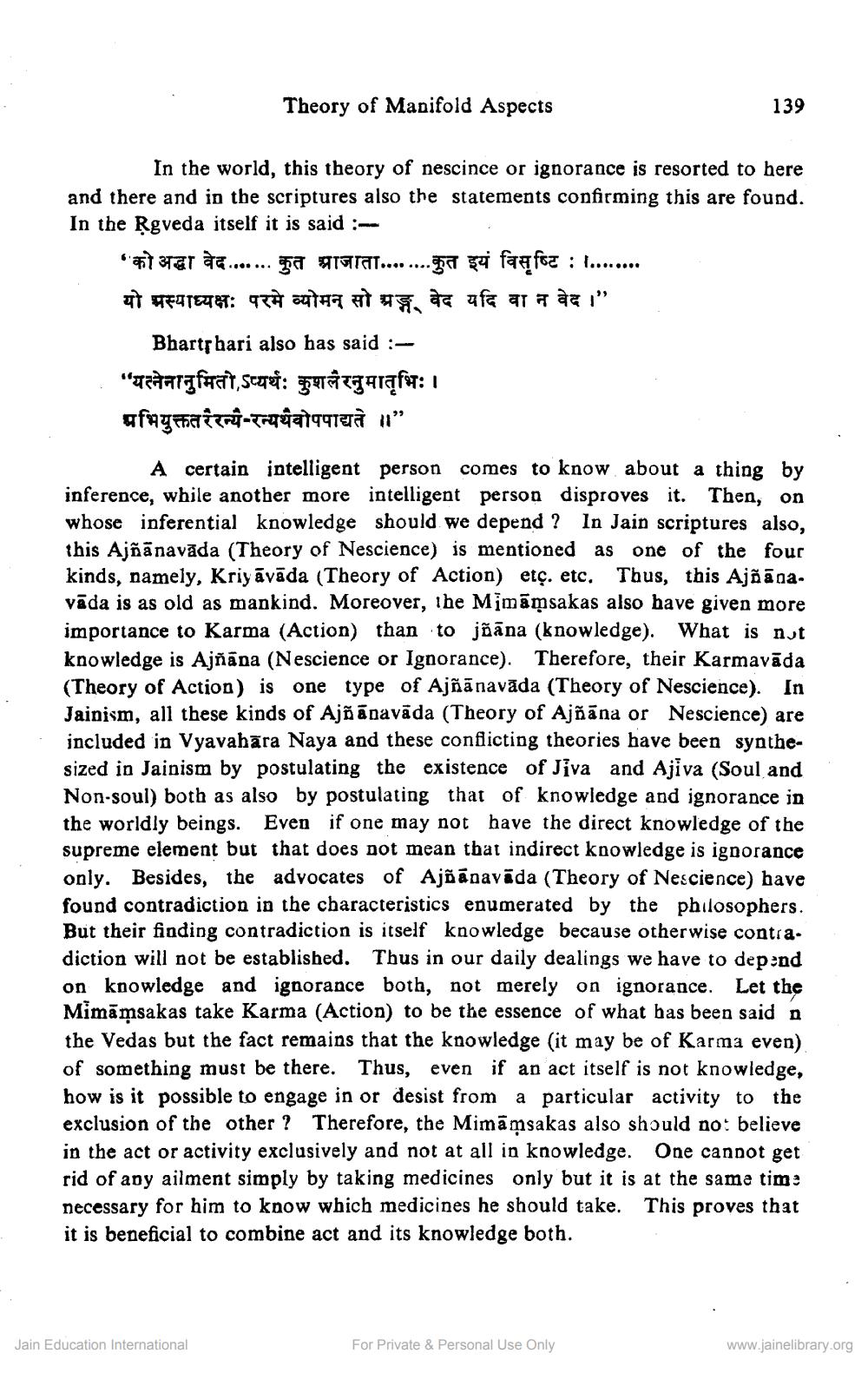________________
Theory of Manifold Aspects
139
In the world, this theory of nescince or ignorance is resorted to here and there and in the scriptures also the statements confirming this are found. In the Rgveda itself it is said :
** ter ....... ga qaral....... so fagfoz : t........ यो मस्याध्यक्षः परमे व्योमन सो अङ्ग वेद यदि वा न वेद ।"
Bharts hari also has said :"Taarafat, steret: Tafe: 1 afwypha Tri-Tophatquà II"
A certain intelligent person comes to know about a thing by inference, while another more intelligent person disproves it. Then, on whose inferential knowledge should we depend ? In Jain scriptures also, this Ajñānavāda (Theory of Nescience) is mentioned as one of the four kinds, namely, Kriyāvāda Theory of Action) etc. etc. Thus, this Ajñāna. vāda is as old as mankind. Moreover, the Mimāņsakas also have given more importance to Karma (Action) than to jñāna (knowledge). What is nut knowledge is Ajñāna (Nescience or Ignorance). Therefore, their Karmavāda (Theory of Action) is one type of Ajñānavāda (Theory of Nescience). In Jainism, all these kinds of Ajñā navāda (Theory of Ajñāna or Nescience) are included in Vyavahāra Naya and these conflicting theories have been synthesized in Jainism by postulating the existence of Jiva and Ajiva (Soul and Non-soul) both as also by postulating that of knowledge and ignorance in the worldly beings. Even if one may not have the direct knowledge of the supreme element but that does not mean that indirect knowledge is ignorance only. Besides, the advocates of Ajñānavāda (Theory of Nescience) have found contradiction in the characteristics enumerated by the philosophers. But their finding contradiction is itself knowledge because otherwise contra. diction will not be established. Thus in our daily dealings we have to depend on knowledge and ignorance both, not merely on ignorance. Let the Mimāmsakas take Karma (Action) to be the essence of what has been said a the Vedas but the fact remains that the knowledge (it may be of Karma even) of something must be there. Thus, even if an act itself is not knowledge, how is it possible to engage in or desist from a particular activity to the exclusion of the other ? Therefore, the Mimāņsakas also should no: believe in the act or activity exclusively and not at all in knowledge. One cannot get rid of any ailment simply by taking medicines only but it is at the same tim: necessary for him to know which medicines he should take. This proves that it is beneficial to combine act and its knowledge both.
Jain Education International
For Private & Personal Use Only
www.jainelibrary.org




